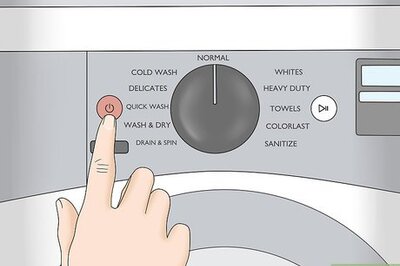
views
New York: Braces may straighten crooked teeth, but they're unlikely to alter your self-esteem and satisfaction with life, according to researchers.
In a 20-year study that followed more than 300 British children into adulthood, researchers found that those who'd had their imperfect smiles corrected with braces were not happier or psychologically healthier than their peers who went without braces.
Self-esteem in adulthood, the study found, was far more dependent on quality of life and similar factors than on orthodontics.
''This runs contrary to the widespread belief among dentists that orthodontic treatment improves psychological well-being, for which there is very little evidence,'' study co-author Dr William C. Shaw, an orthodontist at the University Dental Hospital of Manchester, said in a statement.
He and his colleagues report their findings in the British Journal of Health Psychology.
In 1981, the study enrolled 1,018 children between 11 and 12 years old who had their dental health and psychological well-being evaluated. The children's teeth were examined, but the researchers made no recommendations on whether they should get braces.
Twenty years later, the researchers were able to re-evaluate 337 of the original participants.
They found that the subjects who needed braces as children, and eventually got them, did not appear to be enjoying greater mental health. There was also no evidence that children who failed to have their teeth fixed suffered any long-term psychological damage.
When it came to self-esteem, Shaw's team found, study participants' teeth made little difference. General satisfaction with life, emotional well-being and levels of depression and anxiety were much more important to their self-esteem, according to the researchers.
Braces can improve a person's smile, and that may make a difference in teenagers' feelings of self-worth in the short-term, the study authors note.
However, they conclude, ''by adulthood other psychological and social factors are of greater significance for the maintenance of general health and psychological well-being.''




















Comments
0 comment